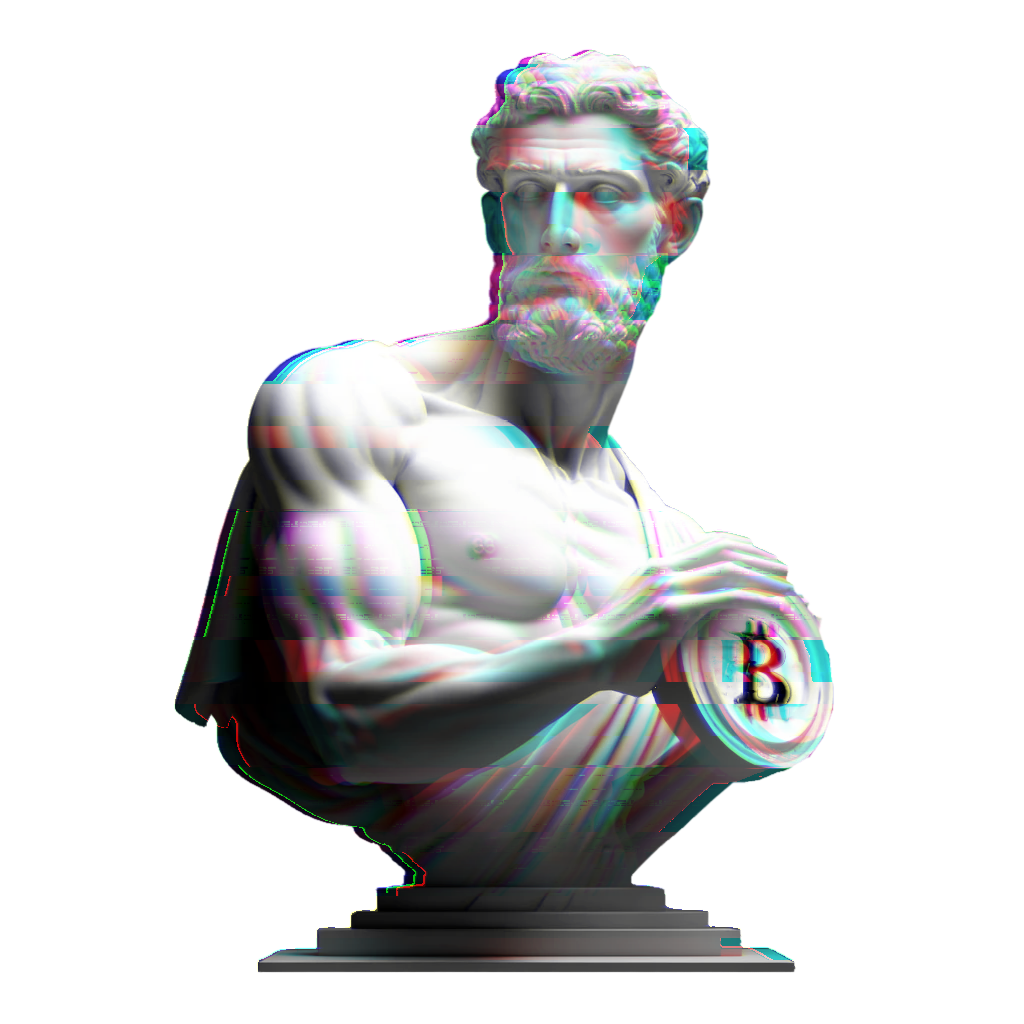
Building a business strategy: implementing your company into the world of Web 3.0
Today’s companies must constantly evolve, as must the technologies they use to succeed. The world has entered the third generation of the Internet, known as Web 3.0, which promises to revolutionize the way companies operate by increasing security, efficiency and profitability.
From this text, you will learn how to build a business strategy to take advantage of the benefits of the web 3.0 world, improve your company’s operations and build a prosperous business of the future.
What is tokenization?
Tokenization is the process of transforming real assets into digital tokens that can be easily exchanged and transferred through blockchain technology. Tokenization offers a cluster of benefits for companies in different industries, the key lies in analyzing the potential of a given company and its technological readiness.
What is Web 3.0 and how does it affect the company’s tokenization?
The Internet has gone through various stages of evolution, from the static Web 1.0 to the interactive and social Web 2.0. We are now entering the Web 3.0 era, which is characterized by decentralization, semantic understanding and increased user control. This shift is being driven by emerging technologies such as blockchain, which is playing a key role in facilitating the tokenization of the business.
The benefits of Web 3.0 and the potential of tokenization
As we dive deeper into the digital age, companies must keep up with the rapidly changing landscape. In this context, implementing your company into the Web 3.0 world and tokenizing your business has become a hot topic among entrepreneurs and investors alike. What are the opportunities that come with building a business in a Web 3.0 world?
Tokenization of the company – your own token
Tokenization of a company is a process in which virtual tokens are issued, which are then usually sold to investors. It’s a bit like converting traditional paper certificates into digital versions that can be transferred and traded more easily and quickly. Through this process, a company can raise capital for business development, and investors can put money into a promising project.
Smart Contracts: Efficient and profitable operations on blockchain
Companies looking to reduce costs and increase efficiency should consider using smart contracts. Smart contracts are self-executing contracts in which the terms of the agreement between buyer and seller are directly written in lines of code.
Smart contracts eliminate the need for manual execution and verification of contracts. As a result, companies can save time and money and streamline their operations. Of course, with sensible implementation, tailored to an organization’s needs and business processes.
Transparency: technologized responsibility and honesty
Transparency is a key aspect of Web 3.0. With blockchain technology, every transaction is recorded on a public ledger that anyone can access. This transparency in data access can help companies build trust with customers.
Decentralization: Increased security and trust
Decentralized platforms are the future of business and Web 3.0. While Web 2.0 still relies on centralized servers, Web 3.0 is designed as a more distributed and decentralized network.
This means that data and transactions are not stored on a single server, but by multiple nodes, which facilitates secure transactions and makes them resistant to hackers. In addition, decentralization promotes trust in business operations because there is no central authority to control or manipulate the data.
Tokenization for streamlined business operations
Using your own token can be a powerful way to streamline business operations, especially if that business is blockchain-based or ready for blockchain implementation. There are different types of tokens and their use cases: payment tokens, utility tokens, fungible tokens, security tokens, NFT tokens. You can learn what characterizes an effective and impressive token implementation in our blog.
What are the benefits of business tokenization?
- Opening up to new generations of consumers. First and foremost, to Generation Z, which includes people born between 1997 and 2012. Generation Z currently makes up about 32% of the global population, and by 2025 it is expected to already make up about 40% of the population of the entire consumer market. This is a very important consumer group, and companies should pay special attention to the needs and preferences of this group in order to compete effectively in the marketplace
- Building a new category of consumer experience and loyalty around the brand. Your customers may be attached to you by having a token. Brands are outdoing themselves in implementing mirror reality into the consumer experience.
- Opening up your company’s potential to a new market
- Enabling you to invest in different types of assets without owning a physical version of them
- Enabling you to obtain additional funding for your business through the issuance of tokens
- Enabling faster and more efficient access to the investment market
Business and the tokenization process
Tokenization of a company involves several stages, including the creation of a tokenomic model, the development of the company’s token, and its distribution and launch. It requires a comprehensive understanding of business goals and objectives, as well as the technical and regulatory aspects of tokenization.
Creating a tokenomic model
The first step in tokenizing a company is to design a tokenomic model that outlines the economic structure of digital tokens. This model should include aspects such as token supply, distribution, pricing and usability. It is important to strike a balance between encouraging early users and ensuring long-term sustainability. An effective tokenomics model should also take into account potential challenges such as inflation, the speed of token transactions on a given blockchain network and regulatory compliance.
Business digitalization
After designing the economic token model, the next step is to develop the actual digital token. This process typically involves selecting a suitable blockchain network, creating smart contracts, and ensuring that the token’s technical specifications match the tokenomics model.
Distribution and preparation of token issuance
Once the company’s token has been developed, it is time to plan its distribution and launch. Distribution of the token includes:
- preparation of a marketing strategy to raise awareness and generate interest among potential investors and users
- launching a private sale (private sale) or ICO (Initial Coin Offering) to make its tokens available to early supporters of the project
- presentation of a project development map (roadmap), detailing the company’s plans to use and develop the token
- listing on reputable exchanges to facilitate trading and liquidity.
Preparing your company for tokenization
Before embarking on a company’s tokenization journey, it is important to assess the company’s business model, build a strong, knowledgeable team and community support, and establish partnerships and collaborations. A well-prepared company can navigate the tokenization process more smoothly and maximize benefits while minimizing risks.
Business model assessment vs. company tokenization
Before beginning the tokenization process, a company’s business model should be evaluated to determine whether tokenization is in line with its goals and objectives. How the introduction of digital tokens will affect existing operations, customer relationships and revenue streams. What are the potential benefits and risks associated with tokenization. Does the company have the resources and capabilities required to support a successful tokenization rollout?
Building a strong team and supporting the community
Successful tokenization of a company requires a dedicated team of experts who understand both the technical and business aspects of the process. The key is a team of professionals, including programmers, marketing specialists, legal advisors and industry experts to guide the company through the tokenization process.
Without the community, business does not exist, which is why it is so important to direct attention to communicating with the community, engaging with potential investors and users through social media and other communication channels.
Establishing partnerships and collaborations
Leverage for growth in the crypto industry comes from strategic partnerships with other companies, industry leaders and blockchain platforms that have knowledge, resources and networks. Such collaborations can lead to new growth opportunities, improved security measures and increased visibility in the industry. By actively engaging with the broader ecosystem, your company can stay ahead of the curve and propel itself into the tokenization and Web 3.0 space.
Legal and regulatory issues surrounding the company’s tokenization
Navigating the complex regulatory landscape is often a challenging aspect of successfully tokenizing a company. It is necessary to ensure compliance with relevant token, securities and other regulations, which can vary depending on the jurisdiction in which you operate.
Challenges and risks of tokenization
While the company’s tokenization offers a host of benefits, it also comes with its share of challenges and risks. Answer the questions:
Where is the project heading?
What does it want to achieve?
Why do I need a token?
Is the price of my token easily manipulated?
Do I know the regulatory risks?
Do I know how to reach the community?
The lack of answers to at least one of the questions above is the biggest risk to your project.





